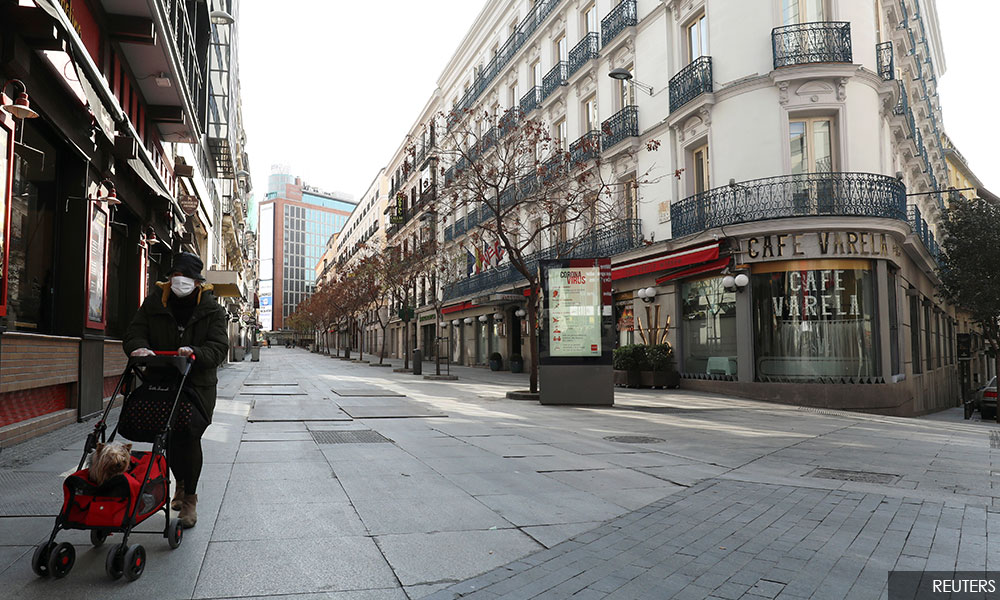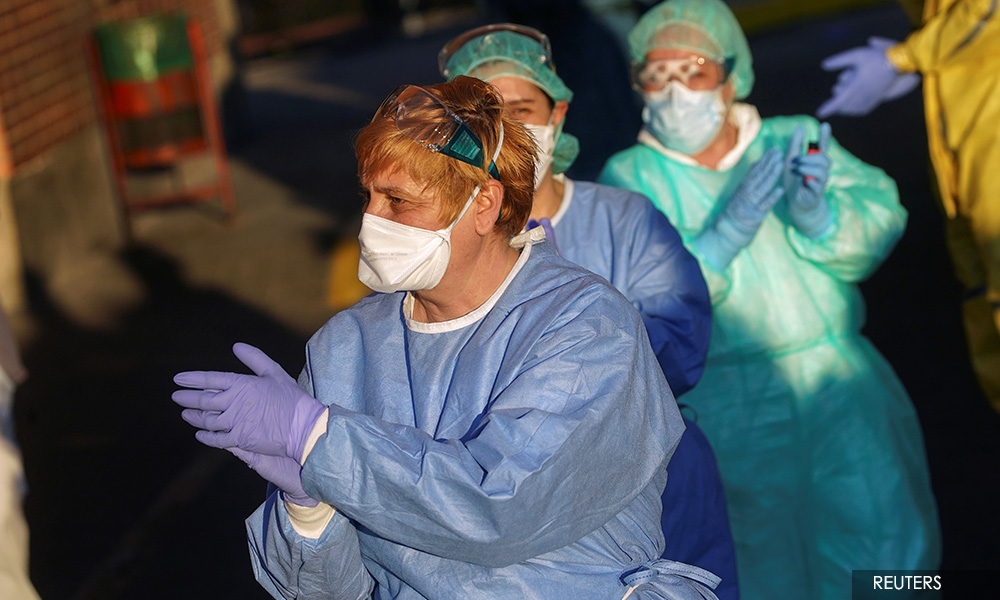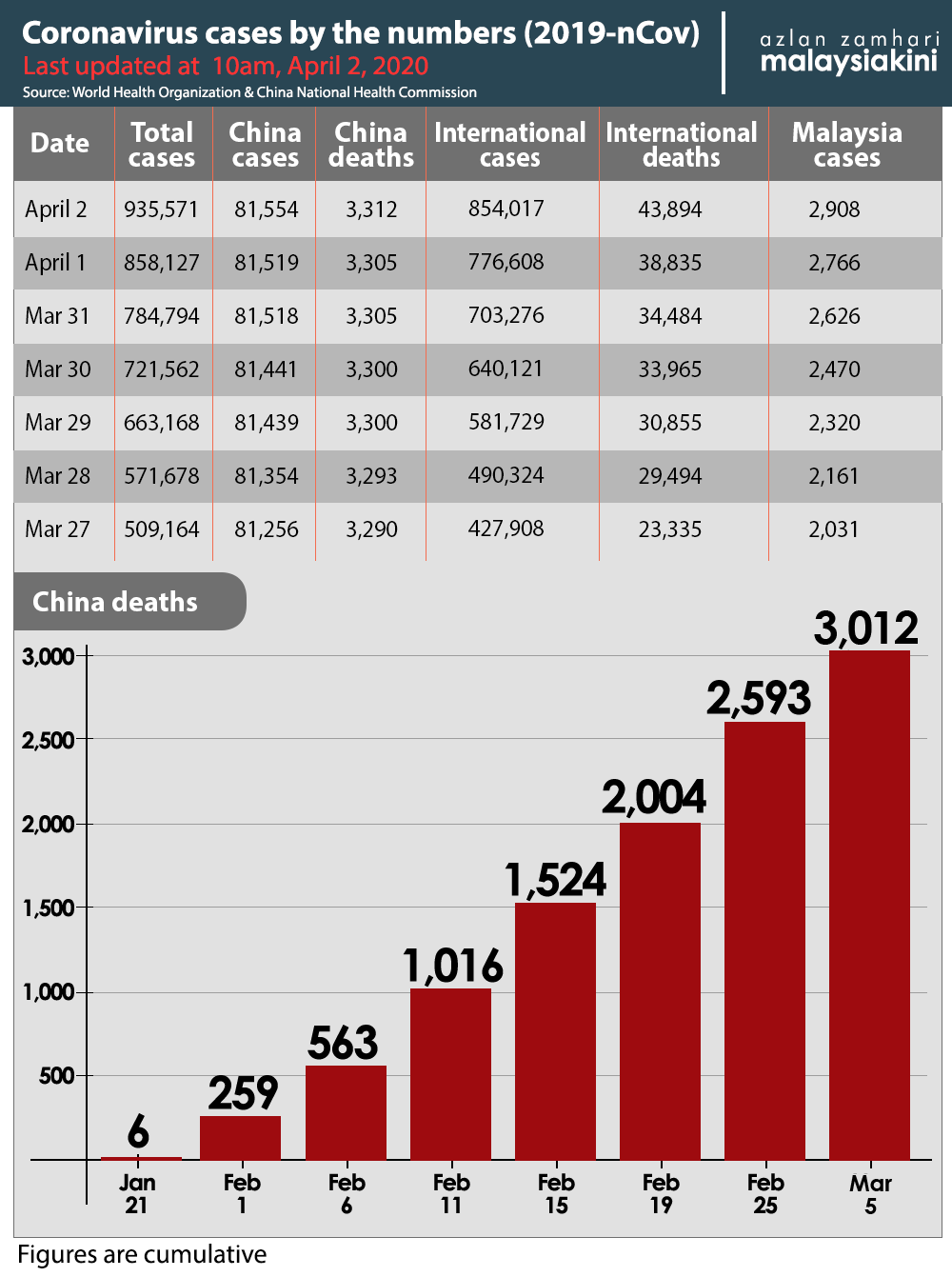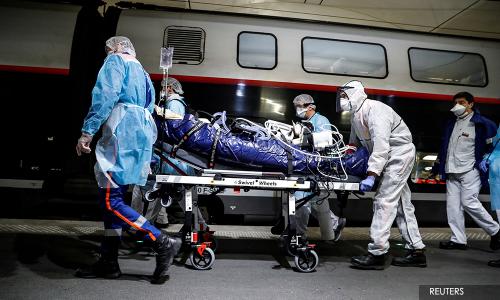Spain's coronavirus cases top 100,000, reports highest single-day death toll
Two planes packed with protective equipment arrived to restock Spain’s overloaded public health system on Wednesday as its confirmed coronavirus cases rose beyond 100,000 and it recorded its biggest one-day death toll from the outbreak.
Barring Italy, the virus has killed more people in Spain than anywhere else, triggering a lockdown that has brought economic activity to a virtual standstill. A survey showed Spain’s manufacturing sector is heading for a slump after shrinking in March at its steepest pace since 2013.
A record 864 fatalities overnight took the country’s overall toll to 9,053 while total infections rose to 102,136, health officials said, adding that the percentage increase in deaths was lower than in recent days.
“The central issue is no longer whether we’ve reached the peak or not, it seems like we are there,” health emergency chief Fernando Simon, who was himself diagnosed with the virus this week, told a briefing.
“The key issue is to make sure that the national health system is capable of guaranteeing adequate coverage of all our patients and treatment,” he said.
The streets of Madrid were virtually empty, with construction cranes standing idle and activity mostly found around hospitals, where health workers were setting up tents to expand capacity, and disinfection crews were spraying sanitiser.

Madrid’s regional government said it was treating more than 700 patients in 11 hotels requisitioned for the purpose.
Health Minister Salvador Illa said the growth rate of contagion was slowing and, after the peak was over, “the second stage will be to reverse it and the third to eradicate the virus.”
Most of Spain has been under lockdown since March 14, with all but essential workers confined to their homes after the state of emergency was tightened. But the virus has continued to spread, overburdening the health system and straining supplies of crucial medical equipment.
‘Saving lives’
Two planes carrying supplies including masks, overalls and anti-bacterial fluids - one from China and one from Turkey - landed on Wednesday at a military airport near Madrid, the Defence Ministry said.
The government said it had sent 5 million pieces of protective equipment to health workers in the regions over the past 48 hours following these and other recent deliveries.
Addressing opposition criticism of the government’s response, Equality Minister Irene Montero, who has had the virus, told Onda Cero radio: “Of course there are things we can do better ... but criticising right now is not useful in saving lives.”

A cluster of infections has sprung up around Moncloa Palace, the seat of Spain’s government, with three ministers catching the virus as well as Prime Minister Pedro Sanchez’ wife and father-in-law.
Three members of the five-strong coronavirus task force, which has been updating the nation on the epidemic via daily briefings televised from the palace, have also tested positive.
In the region of Catalonia, which has the highest number of coronavirus patients in intensive care, the medical emergency service (SEM) issued an internal protocol recommending foregoing intensive ventilator therapy for patients older than 80 and prioritising those with “maximum survival capacity”.
The document, dated March 25, was seen by Reuters on Wednesday. SEM medical director Xavier Jimenez said the criteria used were “generic, ethical, deontological and common-sense”, and adapted to every individual case regardless of age.
Spain’s emergency measures are affecting groups across society. In the first two weeks of the lockdown, calls to a government helpline for victims of gender violence shot up, the government said.
- Reuters

RM12.50 / month
- Unlimited access to award-winning journalism
- Comment and share your opinions on all our articles
- Gift interesting stories to your friends
- Tax deductable

